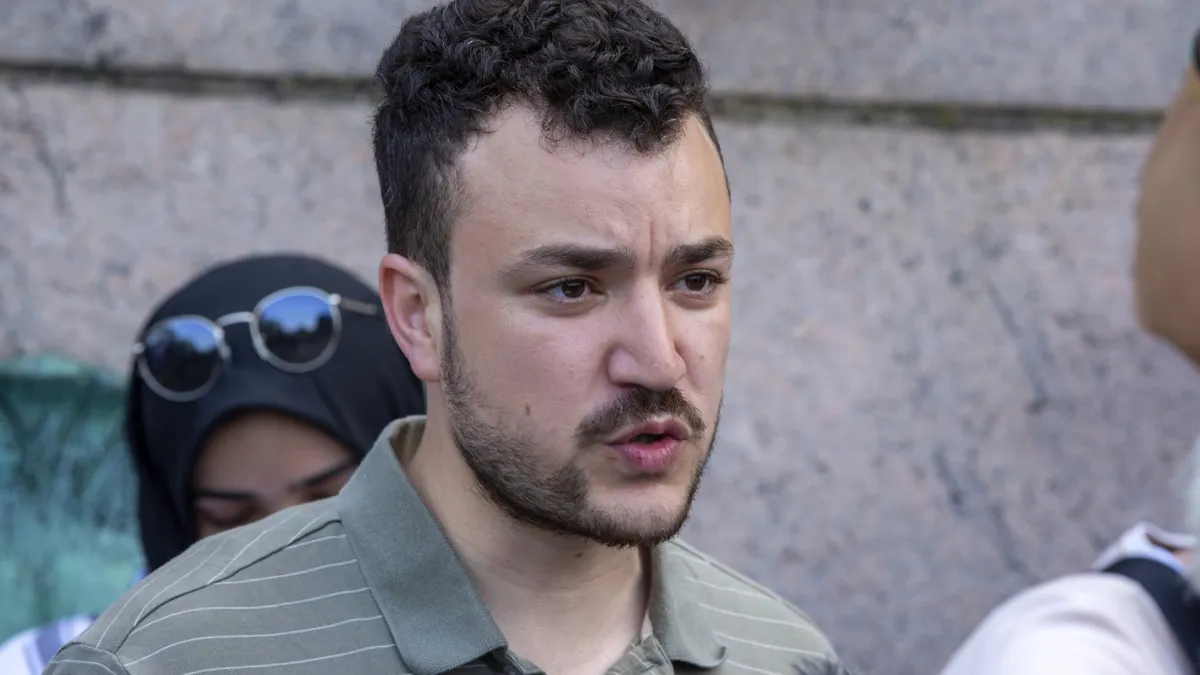
The day before activist Mahmoud Khalil was apprehended by immigration authorities, Secretary of State Marco Rubio dispatched a two-page letter to the Department of Homeland Security. In this letter, Rubio accused the Columbia University graduate student of engaging in antisemitic protests and other disruptive activities. This communication has become a central element of the Trump administration's case against Khalil, as outlined by his legal team.
The letter, dated March 7, was made public by Khalil's attorneys on Thursday, just a day after it was introduced in an immigration court filing by the Trump administration. In the letter, Rubio asserts that Khalil's continued presence in the United States poses potential serious adverse foreign consequences and compromises a compelling U.S. foreign policy interest. However, Khalil's lawyers argue that the government has failed to provide any substantial evidence supporting Rubio's claims. "Two pages. That's it," stated Marc Van Der Hout, one of Khalil's lawyers. "There is no there there at all."
Lawyers representing the Department of Homeland Security were required to present their evidence against Khalil, a lawful permanent resident, following a directive from an immigration judge in Louisiana during a hearing on Tuesday. The Trump administration is pursuing the deportation of the 30-year-old activist, who played a significant role in campus protests last year. Judge Jamee Comans is expected to announce her decision on Friday regarding whether Khalil will be deported or released. No matter the outcome, an appeal to the Board of Immigration Appeals is anticipated from whichever side does not prevail.
Khalil's case is pivotal in examining the extent to which the Trump administration can deport noncitizen protesters. While Khalil maintains that he was merely voicing support for Palestinians in Gaza, administration officials accuse him of providing support to Hamas terrorism. His legal battle is progressing on multiple fronts. In addition to the immigration judge's review of the evidence against him, Khalil's attorneys are also contesting his March 8 detention in federal court in New Jersey.
Following Khalil's arrest by ICE agents on March 8, Rubio announced that he had revoked Khalil's green card. Rubio invoked a seldom-used statute from the Immigration and Nationality Act of 1952, which grants the Secretary of State the authority to personally order the deportation of individuals whose presence in the U.S. the Secretary believes could have serious adverse foreign policy consequences for the nation. However, in 1990, after the Cold War, lawmakers revised this law to protect lawful beliefs, statements, or associations within the United States and elevated the standard for deportation to cases that would compromise a compelling U.S. foreign policy interest.
Khalil's lawyers argue that Rubio's letter fails to meet this heightened standard. "His determination, quote unquote, has absolutely nothing to do with foreign policy," Van Der Hout asserted during a Zoom meeting with reporters on Thursday. "What does he talk about? He talks about First Amendment activity in the United States and its effect on people in the U.S."
In the days following Khalil's arrest, Homeland Security officials levied several additional civil violations against him. They allege that he withheld information on his 2024 green card application, including his work history with a United Nations relief agency and his involvement with a pro-Palestinian activist group at Columbia University. Khalil's legal representatives firmly deny these allegations, stating that the government's additional documents filed on Wednesday do not substantiate their claims regarding the foreign policy charge.
Advocates for free speech are raising alarms about the administration's actions, arguing that it constitutes a violation of the U.S. Constitution by targeting immigrants based on their activism and political beliefs. Khalil, along with several other detained students and scholars, has challenged their arrests on constitutional grounds, igniting a broader discussion about the intersection of immigration law, political activism, and free speech in the United States.